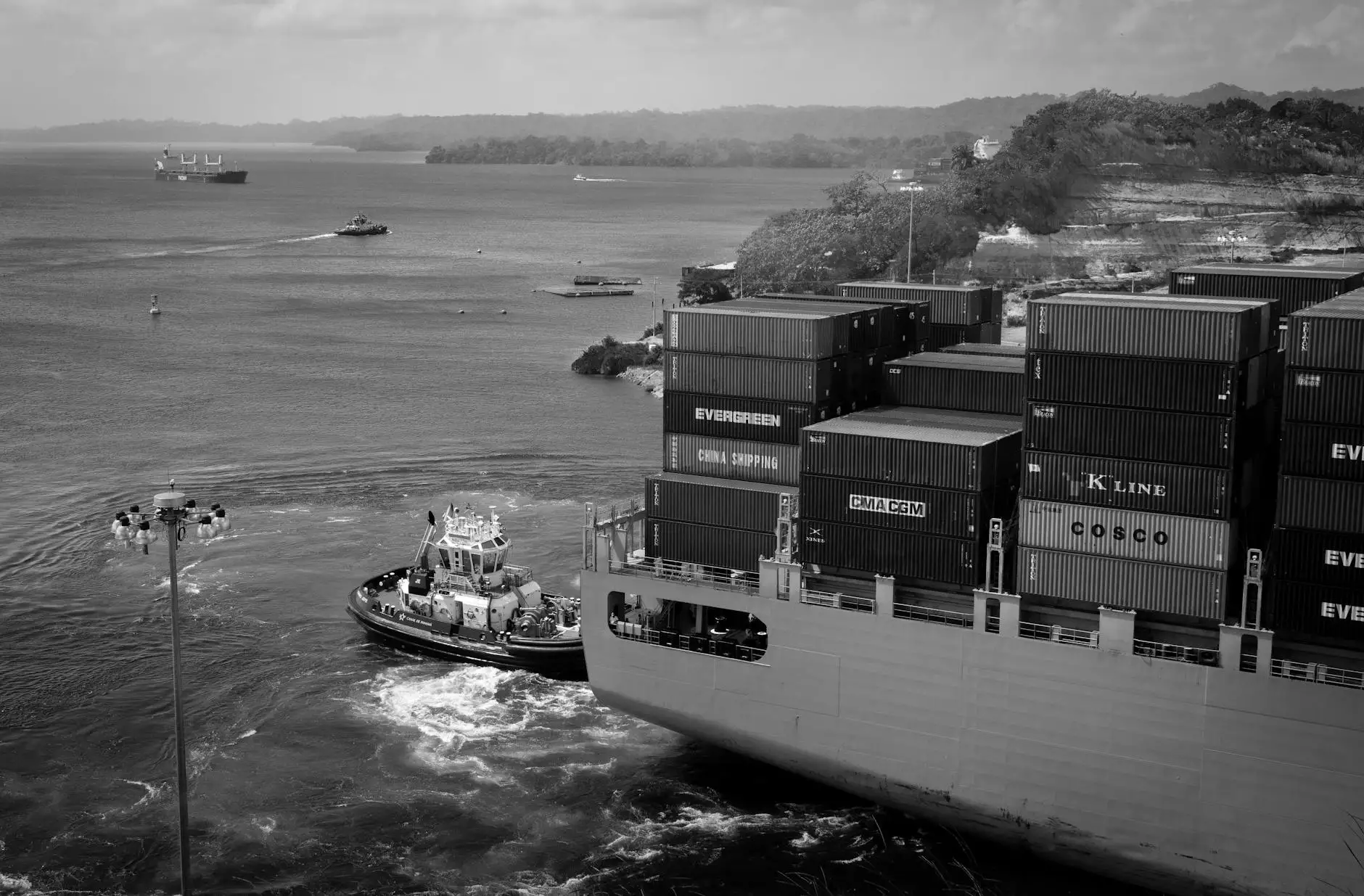Understanding International Freight Quotes: The Gateway to Efficient Shipping

As businesses expand their horizons into the global market, effective shipping solutions become paramount. One of the first steps in managing international logistics is obtaining accurate international freight quotes. This article dives deep into the world of freight forwarding, the factors that affect shipping costs, and how various shipping centers, transportation networks, and airports play a crucial role in international trade.
What Are International Freight Quotes?
International freight quotes are estimates provided by logistics companies detailing the costs associated with transporting goods from one country to another. These quotes include various charges such as:
- Shipping Fees: The base cost for transporting goods.
- Fuel Surcharges: Additional fees due to fluctuating fuel prices.
- Customs Duties: Taxes imposed by governments on imported and exported goods.
- Insurance Costs: Protection against potential loss or damage during transit.
- Handling Fees: Costs for loading, unloading, and managing cargo.
Obtaining accurate quotes is crucial for effective budgeting and planning in business operations. Thus, understanding the factors influencing these quotes is essential for anyone involved in international shipping.
Factors Influencing International Freight Quotes
Several key factors can influence the cost of international freight quotes. Understanding these can help businesses make informed decisions and potentially save costs. Here are the primary aspects to consider:
1. Type of Goods
The nature of the goods being shipped can significantly affect the quote. Fragile items may require special handling, while hazardous materials can incur additional fees.
2. Shipping Distance
The distance between the origin and destination greatly impacts the freight cost. Longer distances typically lead to higher charges due to increased fuel and labor costs.
3. Shipping Mode
Whether goods are shipped via air, sea, or land can change the quote's dynamics. Air freight is generally faster but more expensive than sea freight, which is slower but suitable for bulk shipments.
4. Volume and Weight
The total volume and weight of the shipment are crucial. Freight costs are often calculated based on the larger of the actual weight or dimensional weight (volume-based weight).
5. Customs Regulations
Different countries have varying customs regulations and duties that can impact the overall freight cost. It's essential to be aware of these requirements to avoid unexpected expenses.
6. Seasonality
Shipping costs can fluctuate based on the season. Peak seasons, such as holidays, often see spikes in demand, leading to higher freight rates.
How to Obtain International Freight Quotes
Here are the steps to efficiently acquire international freight quotes for your shipping needs:
Step 1: Gather Shipment Details
Collect all necessary information about the shipment, including:
- Type of goods
- Weight and dimensions
- Origin and destination addresses
- Preferred shipping method (air, sea, land)
Step 2: Identify Potential Freight Forwarders
Research and list reputable freight forwarding companies that specialize in international shipping. Look for reviews and case studies detailing their reliability and customer service.
Step 3: Request Quotes
Contact the chosen freight forwarders and submit your shipment details. It’s advisable to request quotes from multiple companies to compare prices and services.
Step 4: Evaluate and Choose
Evaluate the received quotes considering both cost and service level. Look for hidden charges and ensure you understand the terms and conditions associated with the quote.
The Role of Shipping Centers and Transportation Networks
Shipping centers, transportation networks, and airports are integral to international logistics. Their efficiency can drastically influence shipping times and costs.
1. Shipping Centers
Shipping centers act as logistics hubs where goods are consolidated, sorted, and dispatched. They offer services such as warehousing, packing, and customs clearance, streamlining the shipping process.
2. Transportation Networks
Effective transportation networks encompass rail, road, sea, and air routes. Companies must choose the best combination of these modes, considering efficiency, cost, and delivery timelines.
3. Airports
Airports play a critical role in international freight by providing an essential transport hub for air cargo. Efficient customs operations and modern facilities can reduce transit times significantly.
Importance of Accurate International Freight Quotes
Having accurate international freight quotes is vital for numerous reasons:
- Budget Management: Helps businesses allocate funds effectively for logistics.
- Cost Comparison: Allows for comparison between different freight forwarders, promoting cost-effective decisions.
- Logistical Planning: Facilitates proper scheduling and planning for shipments, preventing delays.
- Transparency: Promotes trustworthy relationships between businesses and logistics providers.
Tips for Reducing International Freight Costs
Reducing costs while obtaining international freight quotes is a priority for many businesses. Here are some practical strategies to consider:
1. Consolidate Shipments
Where possible, consolidate smaller shipments into one larger shipment. This can significantly reduce costs as many freight forwarders offer volume discounts.
2. Negotiate with Carriers
Don’t hesitate to negotiate rates with your chosen logistics provider. Building a long-term relationship can often lead to better pricing.
3. Consider Off-Peak Shipping
If your business has flexible shipping schedules, consider shipping during off-peak seasons to take advantage of lower rates.
4. Use Technology
Utilize freight management software that can help track shipments, optimize routes, and analyze costs, leading to more informed decisions.
The Future of International Freight Quotes
The landscape of international shipping is continuously evolving. The rise of digital solutions, such as instant quoting platforms and AI-driven logistics management, is revolutionizing how businesses secure international freight quotes. These technologies enhance efficiency, accuracy, and reliability in shipping, which is crucial in today’s fast-paced market.
As businesses navigate these changes, staying informed about industry trends and technological advancements will be essential to maintain a competitive edge in international trade.
Conclusion
Understanding and effectively managing international freight quotes is imperative for businesses looking to thrive in the global marketplace. By grasping the various factors influencing shipping costs, leveraging shipping centers and transportation networks, and adopting smart cost-reduction strategies, companies can optimize their logistics operations. This, in turn, results in enhanced profitability and greater customer satisfaction—a win-win for any business aiming for success on the international stage.
For more information and resources on freight forwarding, shipping centers, and global logistics solutions, visit CargoBooking Aero.



